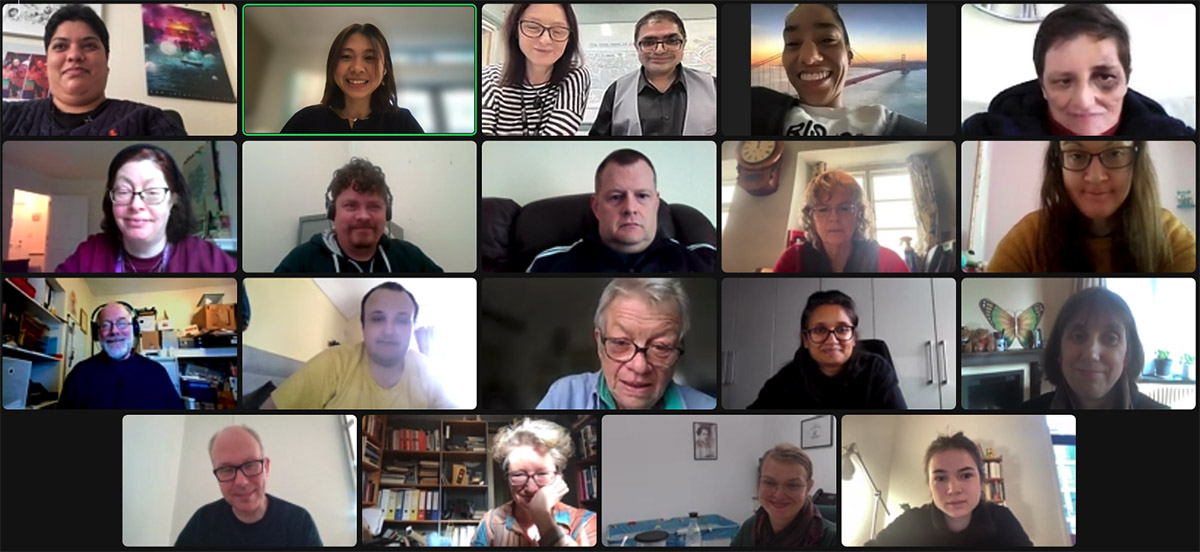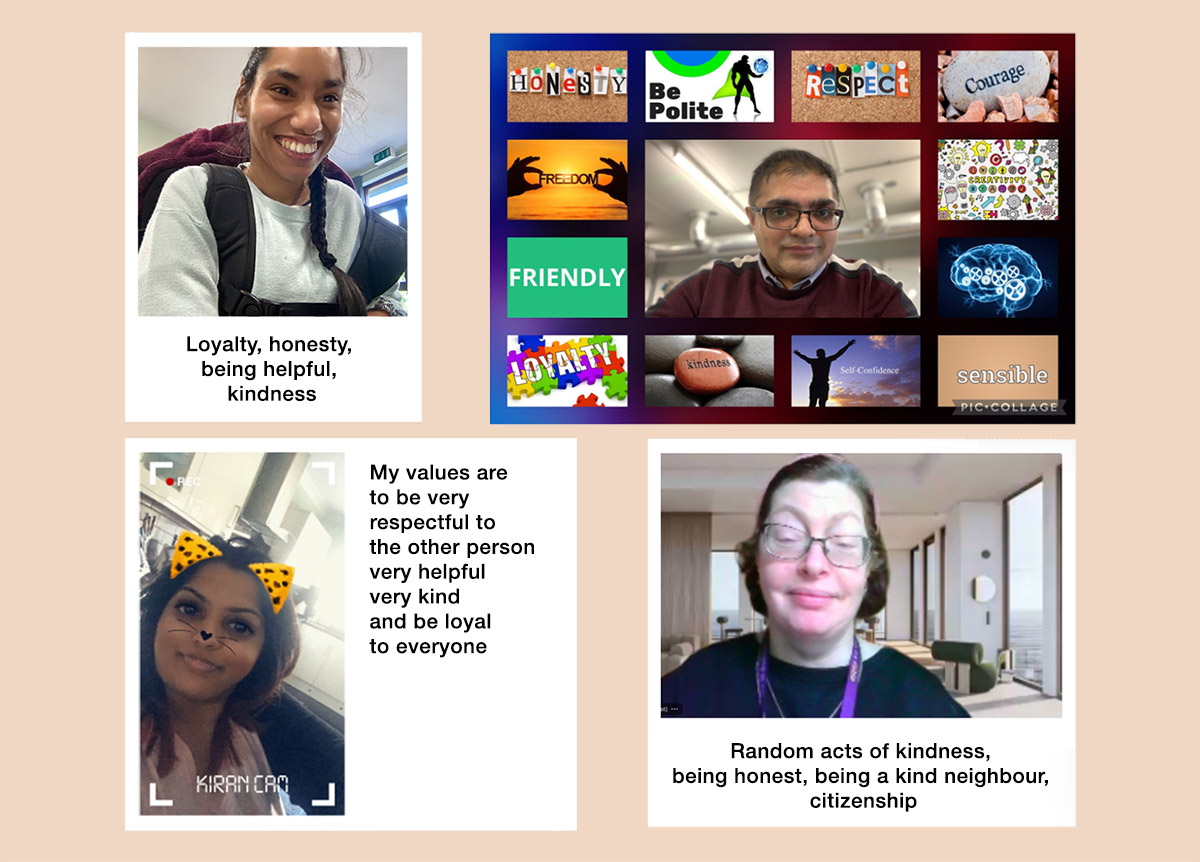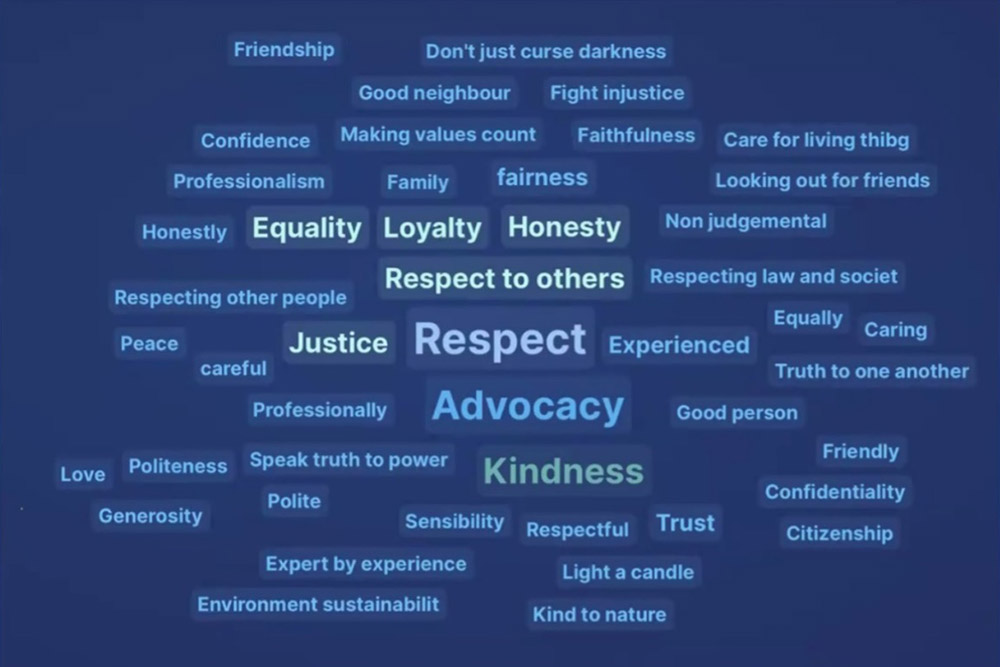On 7 February 2024, Rix Inclusive Research held an online workshop session on Ethics. The workshop was led by Rix co-researchers, Ajay Choksi, Kiran Dillon, Baljit Kaur and Ros Weinberg, supported by Gosia Kwiatkowska, Kanchan Kerai and Synne Lim.

The Big Ideas initiative started in 2021 as a series of workshops organised by the Open University, University of Leipzig and University of Koblenz. Rix Inclusive Research Institute joined the intiative in 2023. The workshops aim to educate self-advocates and activist researchers to increase their understanding of research and empower them to drive meaningful change.
Each workshop explores a significant theory (Big Idea) about disability research. By creating accessible content on Big Ideas, self-advocates can engage and discuss how these ideas relate to lived experience, enabling them to campaign for change.
As part of this initiative, Rix held a workshop on Ethics. Ros started the workshop with a case study on the British Post Office sub-postmasters scandal. This prompted everyone to start thinking about ethics, values, morals, and principles.
Kiran spoke about the history of ethics and key figures like Socrates, a Greek philosopher, who first started getting people to think about the idea of right and wrong behaviour. Later philosophers, like Aristotle and Plato, focus on what it is to be a good person. Immanuel Kant, a deontologist, believed in taking the right action according to a series of rules and principles.
Ajay spoke about Jeremy Bentham and John Stuart Mill who believe in utilitarianism. Utilitarianism is a moral philosophy; it advocates for action that will give the greatest benefits to the greatest number of people. This is the philosophy that is most used in societies today. Ajay gave an example of utilitarianism.
Three people are in a hospital ward and need transplants to prevent them from dying. There is one fit and healthy person there too. Would you sacrifice this fit and healthy person for the three people to live?
This led to an interesting and lively discussion. Everyone agreed that this philosophy does not meet the needs of people with additional needs /lived experience. As a marginalised group, the needs of people with lived experience are not considered.
Ros spoke about the role of ethics in inclusive research and Research Ethics Committee rules. This was followed by a role play and attendees were asked to volunteer for a role. A lively and engaging discussion followed with opposing viewpoints and it became difficult to determine who was right and who was wrong. Everyone, according to their role, believed that their viewpoint was the right one. The role play established that there may be situations where there is no right or wrong answer, and everyone has a different point of view based on their own values, morals and principles.


Ajay went on to lead a discussion about which value is more important, fairness or justice. After some debate, the group concluded that fairness and justice are interlinked. It is not possible to choose which value is more important and the specific situation is likely to determine which comes first, fairness or justice.
The co-researchers moved on to speak about moral dilemmas, determining the right course of action, and how this is often hard to do.
Ethical dilemma from the workshop
What would you do? It is 1943, Tomas the baker is giving refuge to a Jewish family. There is a sudden knock on the door. He sees an officer in military uniform standing outside. The officer asks if he has seen or heard anything unusual in the area, particularly concerning hidden refugees or enemies of the state.
Ethical consideration – what does Tomas value more, his moral duty to protect the innocent or the safety of his own family?
Ethics is about right and wrong, about our behaviours and the choices we make. There are ethical rules that we must follow, and even then it might not be easy to know what is right and what is wrong.
Having a set of rules and human rights helps protect us and guide us towards including everyone and contributing to a just society.
The co-researchers took the lead in presenting and engaging with participants. Alongside discussions of the abstract ethics concepts, the presenters shared personal anecdotes and perspectives to connect abstract ideas to lived reality.
Accessibility and Inclusivity
Central to this workshop was the emphasis on inclusivity and accessibility, making complex theories accessible and providing the opportunity for reflective discussions. Breaking down ethical theories into digestible parts and including interactive elements such as exploring case studies and use of role play, ensured active engagement throughout the workshop. Our co-researchers were able to demonstrate their research and understanding through discussions, drawing on their personal lived experiences to explore ethical dilemmas.
Through this session, we hope to create an inclusive landscape where individuals with a lived experience of learning disability showcase their skills and contribute to meaningful discourse in academic research.
Written by Synne Lim, Kanchan Kerai

